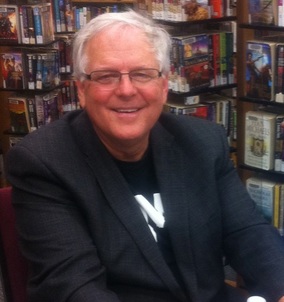
In 2005 John B. Lee was inducted as Poet Laureate of Brantford in perpetuity. The same year he received the distinction of being named Honourary Life Member of The Canadian Poetry Association and The Ontario Poetry Society. In 2007 he was made a member of the Chancellor’s Circle of the President’s Club of McMaster University and named first recipient of the Souwesto Award for his contribution to literature in his home region of southwestern Ontario and he was named winner of the inaugural Black Moss Press Souwesto Award for his contribution to the ethos of writing in Southwestern Ontario. In 2011 he was appointed Poet Laureate of Norfolk County (2011-14) and in 2015 Honourary Poet Laureate of Norfolk County for life. A recipient of over eighty prestigious international awards for his writing he is winner of the $10,000 CBC Literary Award for Poetry, the only two time recipient of the People’s Poetry Award, and 2006 winner of the inaugural Souwesto Orison Writing Award (University of Windsor). In 2007 he was named winner of the Winston Collins Award for Best Canadian Poem, an award he won again in 2012. He has well-over seventy books published to date and is the editor of seven anthologies including two best-selling works: That Sign of Perfection: poems and stories on the game of hockey; and Smaller Than God: words of spiritual longing. He co-edited a special issue of Windsor Review—Alice Munro: A Souwesto Celebration published in the fall of 2014. His work has appeared internationally in over 500 publications, and has been translated into French, Spanish, Korean and Chinese. He has read his work in nations all over the world including South Africa, France, Korea, Cuba, Canada and the United States. He has received letters of praise from Nelson Mandela, Desmond Tutu, Australian Poet, Les Murray, and Senator Romeo Dallaire. Called “the greatest living poet in English,” by poet George Whipple, he lives in Port Dover, Ontario where he works as a full time author.
THE POEMS
Bonfire
the mind is soaked
in the fallen soldier’s sorrowful story
like dipping a book
into grey-paged water
there in the memory of weeping ink
only the sound of one sad horse
plodding unheard
under the saddle shadow
of a weightless rider
a lugubrious clip clop
gone silent but for the
quietness of imaginary war—endless elsewhere
the absent master sits where he drifts in the light
like smoke above burning
his empty boots facing away from the mane
as though they remained
at the foot of his bed
where he dreams on in timeless repose
over unmeasured reams of moonlit darkness
his mount turned to stone
in a vanishing orchard of shade
where he grazes on grass jeweled with dew
see where he sips
at the blackening pool
of the soul of the man he has lost
in an autumn of strangers
when evening falls early and soon
and then in the hoar frost of morning
with its white-glazed grasses of dawn
we are late to remember
the losses of gloaming
and lest we forget
we lived and were loved in a short-lived blue
but for the woe of one horse called forever
with his sad fardel of funereal grief
know that he carries us all to the sun
like a lake in a shivering landscape of rain
All Too Often
the fibers of the alpaca
come falling
filthy from the beast
tumbling away from the ribs
in yellow smoulders
like wet smoke
the fleece stinks
of the fecal aromas
of grey-green mountain graze
it is stained by the piss
of sleeping
in the camel slant of the Andes
high in the thin-to-breathe air
in the Sacred Valley
where the fluvial rush
of the Urubamba sweetens the earth
the sacha Paraqay root
is grated into a foamy wash
to clean spun yarn
in Lima
a three-thousand-year-old
shroud hangs
like a hand-woven tapestry
on a museum wall
this blanket for the dead
outlasting even the old weather
of ancient gods
imagines the working fingers
of the women of the loom
plucking the red music of the cochineal
the carmine-coloured wood louse
like the cut-throat crimson of the sun gone down
draining its blood in a rainless blue
all too often when we may seem real
even in unrecollectable dreaming
when the time-dry flesh of a dead king
shivers to be wakened like touched leather
as the bones come clear on the hands
like the shadow-crossed branches of night
Stubborn Asshole
I am walking on
under ever-changing hues
of the mutable skies
of the mind
which vanish into yellow-black
when I close my eyes
on sunlight
shining through the semi-porous
flesh of the lids like candled linen
and we are all tourists
climbing the hard path
winding upward
through thin air of the Andes
if I stop and stand
panting and leaning on the catch breath
of a short stone wall
I feel myself buoyed within my flesh
like a hide boat
mooring to the slip and flow
of a calm-enough river
I might seem
a statue seeping to the ankles
in runoff from rain
about to sink soaked in the rising of silt
I take my language slow as a sleeper
waking from the stupor of a dream
and so I must push on
muling my swayback bones
like a kindle-burdened beast
as I hear
one fellow-traveller
hissing from behind with a hostile whisper
“stubborn asshole”
speaking of me
and what I might think of
as my brave refusal to be defeated
by almost fainting away in shadow float
like the gliding in flight of a kestrel
know this of me, dear stranger
I value kindness, every sort of kindness
over all our human virtues
every kindness
save one—self kindness
for that I’d lash
my heart within a sharp throng of thorns
where it would beat
and bloom forth like a deep-in-a-thicket rose
and from the shadow-centre of that tangled darkness
while God’s hand holds his lifting palm line to my breast
I would love the world
as a drumbeat loves the hills
In the Catacombs of St. Francis, Lima, Peru
I watch how the teenagers
dance and jostle
rub living shoulder to
living shoulder
feeling the adolescent heat
and prickle of bare arms touching together
in the heart-warmed eros
of their young bodies
the lovely girls
toss their dark hair
some holding up their black tresses
some falling forward in waves
in a shadow-splash of beauty
the boys raw-voiced
the half-swallowed silent
snow apple of the larynx
their new faces
fragrant with the efflorescence
of cheap cologne
they all
lean hard on the stone lip
for a closer view
looking down
at the dust and bone
denizens of the catacombs of Lima
the ulnas organized in bins
lying elbow to wrist
in a deep and dry earth-coloured darkness
the skulls
like broken crockery
dream gourds of a city harvest
from twenty-thousand dead
dead some five hundred years
in that breathless basement
how time-tired
these lost ladies of Thanatos
these caballeros of absence
rubbled in heaps
like a crop of tubers
turned by a four-pronged potato fork
what sad lucubration
in the midnight melancholia of poets
might unlock
the ludic predicament
of thirty young lives
gawking with fascination
at the hermetic abundance of the dead
there exists
such an inescapable
lassitude
in these disarticulated heaps
like the lost
wine cellars of noble Lords
and petty gods
sour sipping the full lips
of these awestruck children
like dust on the breath of a kiss
THE INTERVIEW
(Interview by London Open Mic Poetry Night)
KH: The brief biographical note in the final pages of your first collection of poems concludes with "… and hopes to write the perfect line." What did/do you mean by this?
JBL: “and hopes to write the perfect line ..." I suppose by this I throw my lot in with those who write poetry rather than those who aspire to be called poets. This latter ycleption seems something of a verdict. I want to write poetry, to be in the midst of the thrilling impossibility of doing the thing we do when we surrender. Henry Moore speaking to American poet Donald Hall put it this way, "The secret of life is to have a task, something to devote your entire life to, something to bring everything to, every minute of every day for your whole life. And the most important thing is--it must be something you cannot possibly do!"
KH: Describe, if you would, your writing process. Has it, or the degree to which you edit/re-write, changed?
JBL: I write when the first line comes. I rarely have any idea what I'm about to write. Intention has little to do with execution. When John Lennon wrote "Nowhere Man," he'd spent the entire morning struggling with silence and failing to write a song. In frustration, he went for a little lie down on the couch, and the song came flooding into his mind in whole cloth. That's my process. Distract the conscious mind, and let the poem slip through.
KH: Which author(s) or poem(s) do you continue to mine for insight, inspiration or instruction?
JBL: Right now, I'm reading an anthology of Peruvian poems. I'm fresh back from Machu Picchu, and my imagination is fevered by what I experienced there. The poets I'm reading, contemporary Peruvian poets in Spanish with English translations, fire my imagination at the moment. I've already written five poems since arriving home at 3:30 a.m. Friday morning. And it's now Sunday morning at 10:10. I revisit Dylan Thomas often. Recently I reread Yeats later poems. Reading poetry is my first love as a reader. Poetry, then essays, then non-fiction, then short fiction, finally fiction. I'm reading Wolf Hall right now.
KH: To what degree to do you value humour in your work and what, when maximally effective, may humour achieve?
JBL: Humour unlocks sorrow. If you want to make someone weep, first make them laugh. Humour takes us deep. I love silly jokes. Word play. I love to laugh out loud. I'm reading Lil Bastard by David McGimpsey. It's a book of what he calls 'chubby sonnets" sixteen lines long. I was reading it aloud to my wife at the airport on our way to Peru. And John Wing, he's a comedian by profession a poet by avocation. I recently read with him and he had the crowd laughing till they wept and their sides ached, and then he read an absolutely amazing and poignant poem inspired by his daughter who had recently given up on her dream of becoming a professional musician, a dream which she suddenly realized was her father's dream for her, not her own dream for herself. And the poem was not humourous at all. On the contrary it partook of the melancholia of disappointment when a child disappoints her father, and the father feels the burden of his own aspirations carried by the child. What made that poem go so deep in the heart, and hook itself there forever was the laughter that left us open to the sorrow.
KH: As a student, it sometimes seems to me that the humanities in general and languages in particular are viewed as "marketable" disciplines. I noticed recently, for example, in a corridor of the U.W.O. Arts & Humanities Building (formerly the Ivey MBA building) a poster which read, I think, verbatim: "Why get a degree in the humanities? Think Hire".
Articulate, if you would – and I realize this is a stupidly broad question, but – as an educator and a writer of long-standing, what is the importance of humanistic study for its own sake?
JBL: In life, only the stupid chase money for its own sake. This recent commodification of education is almost so dumb and destructive as to make it unworthy of the dignity of a serious response. I'm reminded here of Wilde's statement concerning the cynic who knows the cost of everything and the value of nothing. It applies here. A certain sort of ambition, all careerism, every kind of commerce measured solely in coin received and given has the capacity to be toxic to the soul, the heart, the mind and the body. Great poetry, like all great art is an antidote to poison, an anodyne to the painful disappointment of an otherwise empty life, the life that chases money catches only the shadow of meaning, the simulacrum of a vacuous dream.
KH: To what degree do you find solace(?) in the kind of truths science offers, and how do these contribute to or influence your work?
JBL: If I think at all of science, I think of two things. I think of the scientific method and of the body of scientific knowledge. The former of these is only one way of looking and not the only method of reliable cognition. The latter of these is always evolving ever-changing latest best guess which has often been gloriously mistaken about the nature of nature. I read widely and in my reading I include any number of books dedicated to science. Of course, I've read Lucretius long poem, "The Nature of Things." I've read Gilgamesh. The Bible. The Koran. Hawkins. I've considered the central question of cosmology "why is there something instead of nothing?" I've read Bronowski's 'Ascent of Man," and I've read Darwin. I'm not certain what we mean by the word ''truth" or what you mean when you speak of the "kind of truth" that science offers. I'll take my moonlight also from the poems of Li Po even as I gaze upon the moon rocks kept under glass in Florida. I remember one small step for man and was a child amazed. I once wrote that "mythology is metaphysics simplified by story," and I see in the story of science the potential honey trap in the almost inescapable monotony of one view subject to the limited tyranny of logic, and the potential poverty of the rational mind if it stands alone without the warming inclusion of those things that cannot be measured or quantified or observed by the cold and objective cognition of an intelligence trained by the exclusive and exclusionary world of most contemporary schools.
KH: Two sentences for the young writers and readers of a future generation or two?
JBL: Two sentences for youth: Never allow anyone to steal your joy. If you would be a poet, read, write, be fully awake and alive as you fall head over heels in love with language and the world.
KH: What is the question you’d see best fit to include in an interview in this context, and how would you respond to it?
JBL: I suppose the question I've been asked often is "why poetry?" This question is asked because fiction is so often thought of as superior in sales and reader interest. Why would one choose to write poetry when poetry has no audience in contemporary reader's life in Canada. And the evidence might be had by the placement of poetry in the marketplace. Go to the big-box bookstores and try to find poetry. You end up on your hands and knees crawling along the floor sniffing at the bottom shelves in a remote region far from the potpourri that perfumes the bestseller entryway with Heather's pics stinking of rose petals and coffee cup aromas of Columbian brew percolating at the doorway.
Why poetry--is asked of me as though I had a choice. And if I had a choice, I'd still choose poetry. Poetry is second only to music in my mind as the best of all the arts. Poetry chose me, not the other way round. And having been chosen, I write.
KH: In “Bigger Love” – Dressed in Dead Uncles (Black Moss Press, 2010) – the lines:
and also here
on Black Out Thursday
the children of Toronto
wondered
what the stars were
haunting the urban darkness
of their newly visible heaven
seem to imply an absence of the numinous or mythopoeic among this next generation. I wonder if you would explore the meaning of the absence of a supra-narrative (if this is an appropriate term), poetic and otherwise, by which we seem as a species to have required momentum, identity, response, etc.
JBL: Black Out Thursday is a lamentation on behalf loss when the past goes missing and the present vanishes due to it having been replaced by the filter of human aculturation. The modern predicament is so polluted by ambient light the enormity of night, the beautiful and dazzling amazement of midnight heavens alive with stars is unavailable to an entire generation of children who are prisoners of civilization and the city. What purity of perception might be had were we not seeing the world through the inescapable filters of literacy. Imagine the pre-Adamic wonder, being awake and alive in a world where our cognition was not corrupted and contaminated and shaped by the fixed symbols of written language. The grain of the first cultivated fields need not be seen as something destined for the counting houses of the owners of the land. This is not nostalgia for a time that never was. It is simply an acknowledgement of the unacknowledged assumptions that colour experience and obstruct the potential purity of experience. In that poem, Bigger Love, I long for a more primitive, less human (ironically more human) world where the grand metaphysical questions come to us in raw light--sunlight, moonlight, starlight, and the luminous and fearless possibility of a vanishing of the difference between the interior world (the secondary world of what we see) and the primary world (the universe as it exists outside of our consciousness). And the greatest obstacle to that purity is war.
KH: Many of the poems of the second section of your first collection [Doppelgänger and Poems Only a Dog Could Love (Applegarth Follies, 1967), respectively], deal consciously with the theme of writing poetry, as “IX”, which begins with the sentence “Poetry instead / of suicide / you said.”, and “XX”, which draws poems as “salvation” for “their God”. With the accumulation of similes and sharply sparse language, the image of a kind of agonized twenty-something leaping inconsolably from page to page evolves. If this evocation is accurate, do you continue to see the writing of poetry as such a lifeline? And is, as the sometimes-explicit undertone of this collection seems to demonstrate, the act of writing a poem for you synonymous with or even preferable to (or inseparable from?) an ideal form of religious devotion or spirituality.
JBL: My favourite lines from Dylan Thomas writing about himself in his Collected Poems, a book which I read when I was about sixteen, are these words: "These poems, with all their crudities, doubts, and confusions, are written for the love of Man and in praise of God, and I'd be a damn' fool if they weren't." (Dylan Thomas, November 1952). I still find those words to be true, as they were true for him then, they remain true for me now.
KH: With respect to your decades of experience as an instructor, how has the university system in Canada, both in practice and in theory, changed most significantly between your years of formal study and now?
JBL: When I attended Western, the campus book store had a very large and impressive selection of poetry books for sale. I was like a kid in a candy shop. I went there often and browsed and bought and read and returned to browse and buy and read until I had accumulated such a wonderful personal library as to be the envy of any lover of poetry. I bought dozens and dozens of poetry books. That book store no longer has a poetry section. Enough said? I taught a class in Sport Literature in the department of kinesiology. When I was teaching the novel "The Power of One," a novel set in South Africa during WWII, I discovered that most of the students in the class had no idea as to when WWII was fought, and at least half of the class (most of whom were on the dean's honour list) had no idea as to whether Canada had been involved in the war. Enough said?
KH: With respect to your decades of experience as a poet and author in Canada, in what way(s) has the relationship between Canadian poetry and Canadian politics most markedly changed? Are these “p” words bedfellows? How are they doing – counseling, second honeymoon, new parakeet? And in this context what do you think of the Mayor’s Poetry Challenge, and/or (presuming there's a relation, here) the recent NDP swing in Alberta?
JBL: I find recent Canadian politics to be quite weird. The election of the NDP member in Quebec who was in Vegas at the time of her election and she had never been in the riding where she was a candidate seems disgraceful to me. The failure to exercise your franchise on the part of over half of the citizens in the country is an anathema and it deserves the approbrium of those of us who vote and then suffer from the stupid neo-conservative governments that shame us all. The law-and-order hawkishness of our current right wing majority has used its mandate to attack essential institutions like the CBC all the while stoking fear and attacking the arts as though we were members of a criminal class. In the meantime, I cannot complain as to the attention I am receiving from the local community. Over 100 people attended a reading I gave at the local library in Port Dover. And those people paid $20 a ticket to come. In the village of Highgate, where I attended elementary school, I have read there five times now, and I have had audiences in excess of 100 in a village of less than 300 people. In Windsor, I have participated in poetry readings with over 400 in attendance. I have faith that we who love this world will find one another and we will create a community that refuses the neoconservative individualism and careerism that poisons the well and threatens to destroy the minds of the next generation of children with the toxic mendacity of materialism and war.
The Mayor's Challenge raises the profile of poets and poetry, but it is only a brief breath in time. If it becomes precious oxygen for a few, then it is doing important business. It briefly dignifies what we do.
As for Alberta politics and the recent election, I only know the results, I do not know the reason behind those results (although I could speculate, it would not be well-informed speculation) and I do not know anything about the long-term impact of this upset. I witnessed the NDP victory in my own province. I know it was a backlash against the hubris of the liberal incumbent premier of the day with his smarmy smile and crimson tie, and in the wake of a startling victory for Bob Rae, the machinery of the popular press went into overdrive to demonize and vilify his government. We reaped the whirlwind by electing Mike Harris, arguably the worst government in the history of Canada. I spent the entire mandate of that neoconservative era listening to the ugly-minded supporters of his government waging verbal war on the poor. As for the arts, during his government the arts were characterized as a criminal underclass. Informed opinion was scoffed at. Let them eat canned tuna was the mantra of the day. So, when the electorate swings wildly this way and that, I fear what comes next, what comes in the wake of a sea change. In Ontario, the province swung so far to the right in the aftershock of our brief flirtation with NDP, it has taken us ten years to recover, and we are still suffering the destructive juggernaut of right wing's crushing of the democratic benevolence of what it means to be Canadian.
KH: To take a stanza from In the Catacombs of St. Francis, Lima, Peru:
what sad lucubration
in the midnight melancholia of poets
might unlock
the ludic predicament
of thirty young lives
gawking with fascination
at the hermetic abundance of the dead
Firstly, do you see the oblique or frivolous consideration of death by the young in particular as cultural or human?
Secondly, regarding your choice of words, and the craftsperson’s joy and emotive precision conveyed thereby, I wonder if you ever feel, for example, as Ferlinghetti did in “Constantly risking absurdity and death” – “whenever he performs / above the heads / of his audience”? In view of your description of trying “to find poetry” in “big-box bookstores”, do you identify, to some degree, with Baudelaire in his vignette “The Dog and the Scent Bottle”? And is this a question for today, or a question for the arts generally?
Poetry is often charged with – and successfully convicted of, considering, in part, the constitution of the juries in question – with lexical elitism. Is it to pander to modernity to write in Wordsworth’s or Whitman’s or Bukowski’s ‘language of the street’? Does one shirk responsibility thereby? Is obligation an improper term? Or may it only apply to what one has to the page?
JBL: I actually find the fascination with death by these young people to me quite charming. I'm reminded of my own period of fixation on the macabre when I was a teenager. Evenings at the home of friends playing with the ouija board, reading ghost stories well into the night, a youthful flirtation with Alfred Hitchcock presents, and so on. I watched those young people staring down at the bones in the catacomb and saw my own self in their awestruck youth.
I certainly hope I don't perform above the heads of an audience, if by that he means complexities beyond their ken. I guess what I'm hoping for is that poetry slows us down enough, makes us linger long enough to see. If we poets are sometimes given the gift of drawing water from the deep wells that we share a common thirst.
I hadn't read Baudelaire's "The Dog and the Scent Bottle," or at least I hadn't remembered reading it until you brought it to my attention. I guess I'd say that what he is implying about humans is only sometimes true. When I was very young a radio station I listened to sometimes used to host a feature called "battle of the bands" and they'd play two songs and ask the audience to call in and choose one of the two as the better song at any given moment. Herman's Hermits 'I'm Henry the Eighth I am" soundly defeated "Strawberry Fields," by the Beatles. Time has rendered that particular competition ridiculous in the extreme. Of course, some of us knew at the time, and obviously others did not. Mood rings, pet rocks, novelty songs, certain kinds of cool in the moment slang, the mullet, garish bling, powdered wigs, wax lips, jawbreakers, candy cigarettes, Tiny Tim, every dog will have his day sniffing excrement and lapping up garbage. I refuse to forget the boy I was when I was a super-cool Poindexter strutting the brick halls of RDHS in my winkle pickers with steel clickers on the heels. I refuse to sit in judgement of that risible boy. There is no such a thing as an apprentice responder. Everyone has his Hardy Boy days when some of the teachers who did not get it made light of our enthusiasm. If I don't refuse to forget then I fail to imagine. I smile to think of those young listeners phoning in and voting for Herman's Hermits. I'm grateful that I wasn't one of them, that even then I knew the difference between bubble gum and art. But then, that wasn't true of every aspect of my youthful taste and judgement. Sad to think how some people never get it. But I say, "better a bad poem than a good bomb." Leave it at that.
Why does the word schadenfreude exist? What mysteries of the complexities of happiness are unlocked by knowing the word eudaimonia. It's always been obvious to me that deliberate obscurity is a vice of bad poetry. I agree with Neitzche's caveat concerning the fact that certain poets muddy their waters to make them look deep. When I was sixteen and reading Elliot's "The Waste Land" for the first time, I was frustrated by the erudition that seemed exclusionary. But the language is so lovely, and comprehension so profoundly satisfying that I've read that poem dozens and dozens of times to wrestle with the deep mysteries with which the poet is concerned. I've been called a People's Poet often enough to know the value of accessibility. On the other hand, I love words for their music and use them for their qualities as dictionary music. Don Gutteridge once told me that the difference between a good reader and a bad arises from the fact that the former knows enough to read a passage twice and then again and perhaps again in order to unlock the meaning. It's the not knowing that you don't know or the laziness of the imagination that thinks we can experience the deeper truth without the shared experience of common language available to us in a dictionary. Read Shakespeare if you want to see how a great writer celebrates the breadth of language. And I rarely use a word I didn't know when I was seventeen. I grew up on a farm and my mother would sometimes say to me, "talk farmer." To this I told her, Virgil was a farmer. I'll take the entirety of available music and sing like a songbird dreaming his song whilst he sleeps.
I do love Bukowski, by the way. And Wordsworth too. But I prefer Coleridge to Wordsworth and Dickinson to Bukowski. Read Emily Dickinson's letters if you want to see the genius of an original mind. Wrestle with her complexities and see how the universe blooms.
In those lines you've chosen, I see a contrast between the language of ''sad lucubration" and the giddy metaphysics of children. They are both thinking of death. Think here of Hopkins poem "Spring and Fall" to a young child, "Margaret are you grieving/ Over Goldengrove unleaving," wherein he writes "And yet you weep and know not why" ... the poet's meditation on aging and death gifts the child with knowledge or at least with wrestling as a child does with the great metaphysical questions. One dare not fall into the honey trap that dumbs us down to a willful simplicity when the rich language of the entire lexicon makes irony, complexity, paradox luminous and true. Language is a light by which we might glimpse varieties and variations of meaning.
THE EVENT
WHERE: The Mykonos Restaurant at 572 Adelaide St. North, London, Ontario. The restaurant has a large, enclosed terrace just behind the main restaurant, which comfortably holds 60 poetry lovers. Mediterranean food and drinks are available. Except for the coldest months, the terrace is open to the parking lot behind. Overflow parking is available across the side street and in the large lot one block north, in front of Trad’s Furniture.
WHEN: Doors: 6:00 to 6:30 (It's a restaurant.) Event begins at 7:00
THE FEATURED POET: John B. Lee will open the event at 7:00, followed by a Q&A.
OPEN MIC: Following the featured poet, open mic poets will read until the intermission at about 8:00. Depending on the number of open mic poets signed up, readings could go as late as 10:30, with a second intermission at about 9:00, but the event usually ends about 9:30. Each poet has five minutes (which is about two good pages of poetry, but it should be timed at home). Sign up on the reader`s list, which is on the book table at the back. It's first come, first served, so those who come early have a wider choice of when they will read.
COVER: By donation (in donation jar on back table, or use Donate Button on website Donate Page). Donations are our only source of income to cover expenses.
RAFFLE PRIZES: Anyone who donates at the event receives a ticket for a raffle prize, three of which will be picked after the intermission. The prizes consist of poetry books donated by Brick Books and The Ontario Poetry Society.
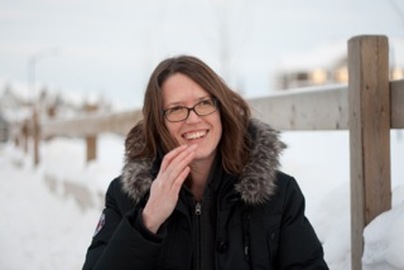
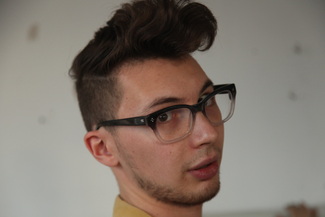
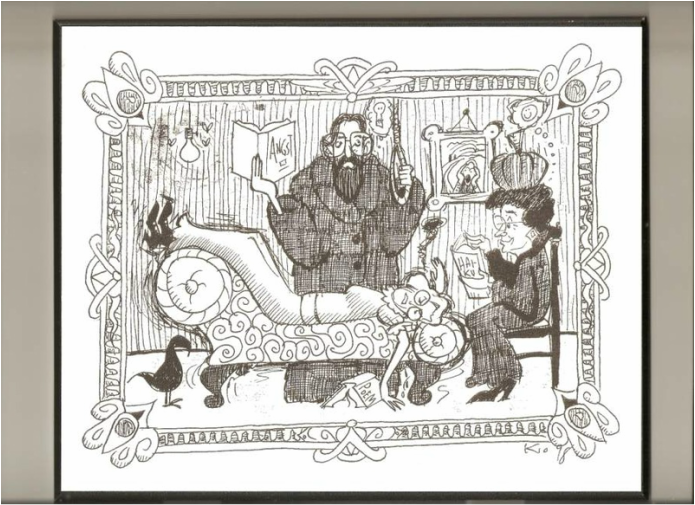
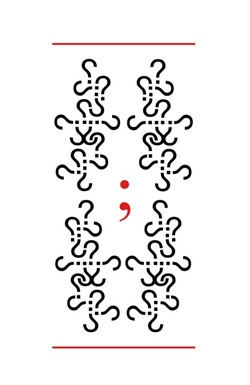

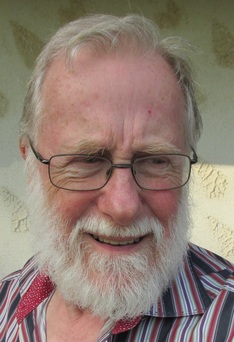
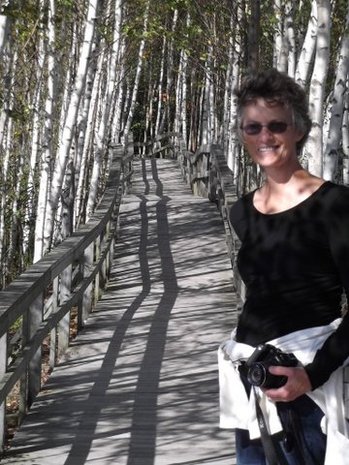
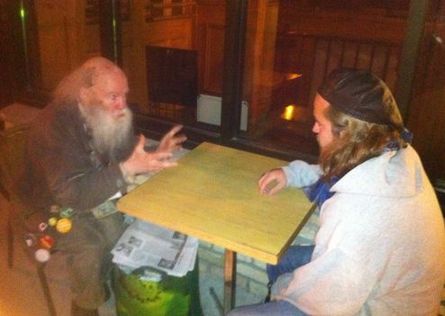
 RSS Feed
RSS Feed